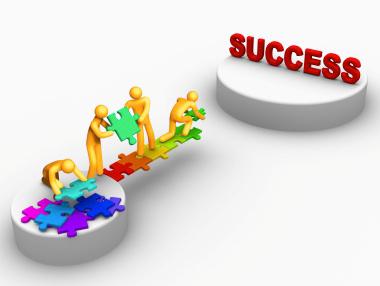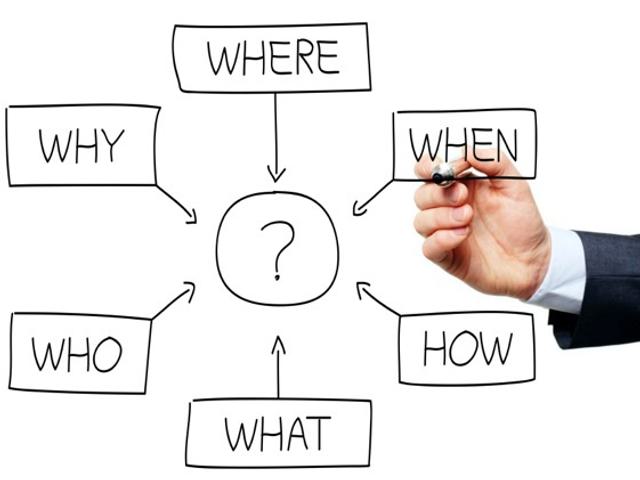Enabling your board members and other fundraising volunteers
- Written by
- Simone Joyaux
- Added
- September 02, 2014

One of my pet peeves: staff members that do not adequately enable board members and other volunteers to function effectively.
Fundraisers complain about board members who don’t help fundraise. Executive directors complain about poor governance. Look in the mirror, I say! In general, board members fundraising and board members governing are only as good as they are enabled to be. And enabling is the staff’s job.
Enabling is the process of empowering others. Enabling means giving people the wherewithal, opportunity and adequate power to act. When you empower someone, you distribute and share your own power. And power shared is multiplied.

Enabling encourages participation, enhances the self-worth of others, shares responsibility and authority. It energises everyone in the organisation and produces the best performance from individuals and groups. And there’s another result: enabling allows your volunteers to succeed. Then those volunteers will stick around and even do more.
Some people mistake enabling for caretaking, or suspect that it will end up being patriarchal and patronising. And in social service circles, the word ‘enabling’ can be a pejorative term. Not in my vision: true enabling is a value-driven philosophy that invests influence and responsibility in all parties.

In my meaning, enabling is a set of functions – supported by attitude and skills – that builds understanding, energises commitment and produces results. Without good enabling, the opposite is true.
As far as I’m concerned, effective enabling may be the single most important contributor to improving your organisation’s fundraising performance. And effective enabling may be the single most important contributor to improving your board’s performance.
So look in the mirror. I do. Quit whining. (I still whine, but less!)

Enabling functions
1. Transmit the organisation’s values.
2. Engage volunteers in the meaning of your organisation.
3. Articulate expectations and clarify roles and relationships.
4. Respect and use the skills, expertise, experience and insights of volunteers.
5. Engage volunteers in process as well as tasks.
6. Provide direction and resources. Explain why, not just how. Identify and remove barriers, help develop skills.
7. Coach and mentor people to succeed.
8. Transmit the body of knowledge and best practice, helping others anticipate next practice. (And this includes helping people distinguish between unqualified personal opinion and the body of knowledge.)
9. Communicate – which includes helping people transform information into knowledge and learning.
10. Encourage people to question organisational and personal assumptions and ask strategic and cage-rattling questions.
11. Engage people in meaningful conversation that produces learning and change.
12. Ensure quality decision-making.
13. Anticipate conflicts and facilitate resolution.
14. Encourage volunteers to use their power, practise their authority, and accept their responsibility.
15. Model behaviour.
16. Manage
17. Create opportunities/strategies to buy more time to think things through. (Cohort 14, Saint Mary’s University Philanthropy and Development Program)
18. Enhance attrition (and facilitate thank and release, if necessary).
19. Monitor, evaluate, and enhance enabling.
Enablers have the right attitude. Enablers:
1. Respect and trust others.
2. Are trustworthy themselves.
3. Are comfortable with diversity and complexity.
4. Welcome divergent opinions.
5. Are flexible and comfortable with change.
6. Commit to process as well as outcome.
7. Appreciate conversation and disagreement.
8. Share responsibility for success.
9. Acknowledge responsibility for failure.
10. Balance personal ego with egos of others.
11. Persevere.
12. Are patient.
Enablers possess essential skills. Enablers are:
1. Organisational development specialists.
2. Proficient teachers and learners.
3. Effective communicators (listening, informing and helping to transform information into knowledge).
4. Critical thinkers (anticipating problems, identifying solutions and redirecting volunteer energies).
5. Strategists (analysing situations, identifying barriers and opportunities, capitalising on strengths and ensuring action and results).
6. Comfortable with conflict and resolve conflict through shared power with as many individuals as possible; and,
7. Effective motivators and can focus and manage people well.
For more information about enabling, see my book Strategic Fund Development: Building Profitable Relationships That Last (Wiley, USA, 2011).
© Simone Joyaux 2014

















